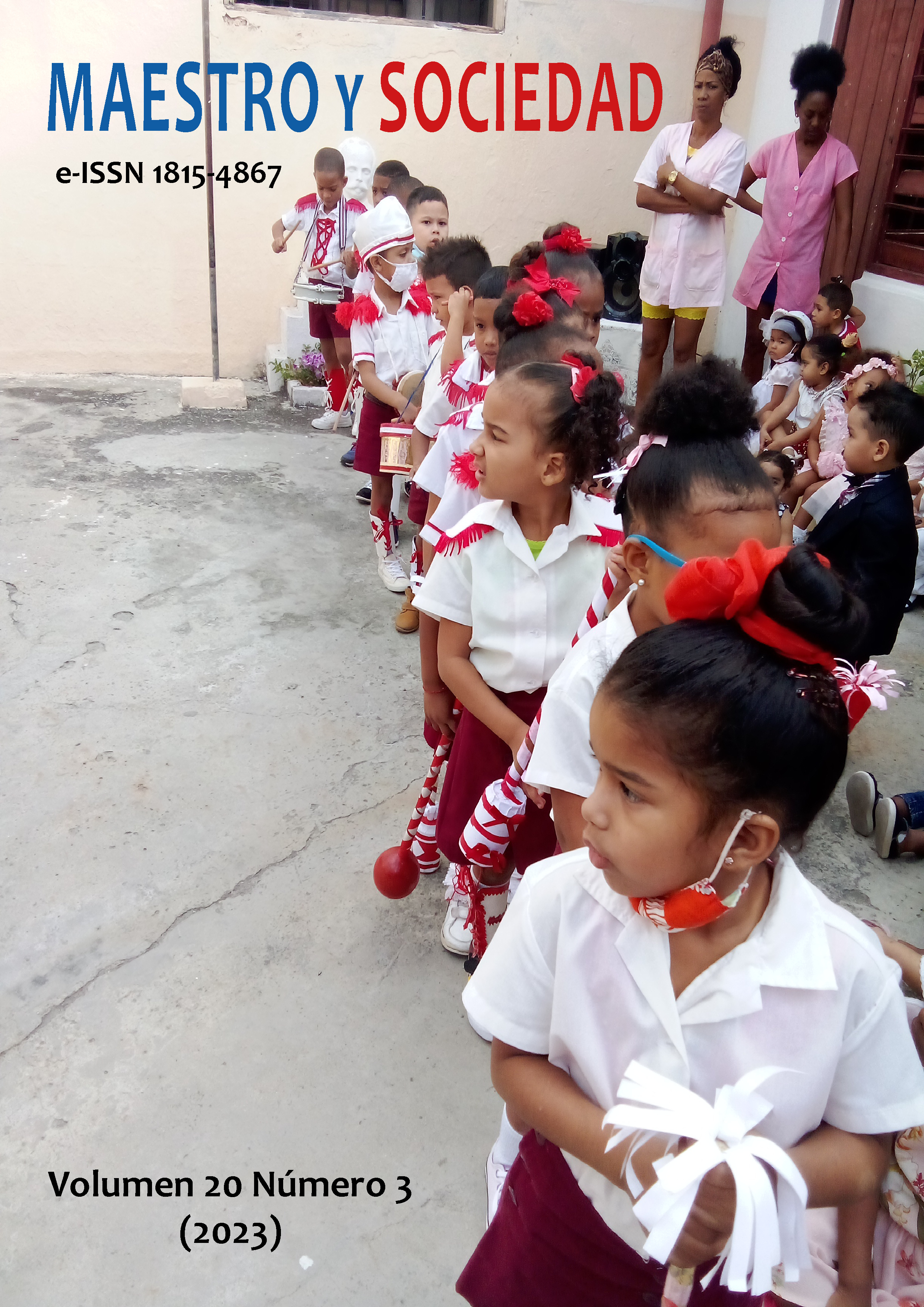Recovery of tangible heritage as an alternative to social development in Anconcito Parish
Recovery of tangible heritage as an alternative to social development in Anconcito Parish
Keywords:
ecosystems, capacity building, correlational, descriptive, social developmentAbstract
Introduction: The socioeconomic and cultural dynamics in the communities make it necessary to motivate the appropriate use and access to heritage assets, so that participation, rescue of ancestral customs and better interaction between inhabitants and authorities are promoted; The purpose of this paper is to explain the importance of recovering the tangible heritage of the Anconcito parish. Materials and methods: The research designed a quantitative part consisting of descriptive and correlational development, in which the statistical link between the study variables is verified by applying the parametric or non-parametric relationship test, on the other hand. , the qualitative part, is based on the understanding of the research problem formulated under techniques, such as the semi-structured interview, to obtain information. Results: The results obtained through the review of secondary information were complemented with primary information (observation, surveys carried out) generating the first referential framework. Discussion: The relationship between culture and tourism constitutes a key factor for the generation of local development, favoring innovation, creativity and respecting identity, cultural diversity and authenticity, as well as strategies for poverty reduction. Conclusions: Explaining the way to promote the recovery of the tangible heritage of the Anconcito parish, evidence that in the Rural Parish of Anconcito its activities have been diversified insufficiently, for which a training program is required to promote the recovery of tangible heritage.
References
Afanador Cubillos, N. (2023). Historia de la producción y sus retos en la era actual. Región Científica, 2(1), 202315. https://doi.org/10.58763/rc202315
Delgado, F. (2011). Los sistemas precolombinos de manejo del agua en la Costa del Ecuador . Antropología Cuadernos de investigación.
Equipo Técnico Santa Elena EP . (2015-2019). Plan de Desarrollo y Ordenamiento Territorial de la parroquia Anconcito . Salinas: Gobierno Autónomo Descentralizado Parroquial de Anconcito .
Fisher, E., & Gonzalez, Y. S. (2020). Qualifications and Certificates v Practical Knowledge and Experience: Is There a Winner?. Business and Economic Research, 10(2), 1-21.
Gobierno Autónomo Descentralizado Municipal de Cantón Salinas. (2014-2019). Plan de Desarrollo y Ordenamiento Territorial del Cantón Salinas.
Hevia, R., & Kaluf, C. (2000). Patrimonio nacional: preservando la memoria, construyendo identidad. UNESCO.
Kashyapa, A., & Yapa, S. (2013). Prácticas ancestrales de crianza de agua. Edipcentro Cia Ltda.
Maldonado Rivadeneira , M., Castro Granoble , C., & Leon Valle , W. (2017). Participación Ciudadana y Patrimonio Cultural: Experiencias para su revalorización, Parroquia Anconcito, Cantón Salinas. Revista Ciencias Pedagógicas e Innovación.
Marcos Pino , J., & Bazurco Osorio, M. (2006). Albarradas y camellones en la región costera del antiguo Ecuador. En F. Valdez, Agricultura AncestralCamellones y Albarradas. Contexto social, usos y retos del pasados y del presente, 93-110.
Marcos, J. (2004). Las Albarradas en la Costa del Ecuador: Rescate del conocimiento ancestral del manejo sostenible de la biodiversidad . Guayaquil:CEAA-ESPOL.
Martínez Maganto, J. (1990). Faros y luces de señalización en la navegación antigua . CuPAUAM, 67-89.
Natale, M. (2003). La edad adulta: una nueva etapa para educarse. Madrid: Narcea.
Servicios Ecosistemicos de las Albarradas en la Península de Sanata Elena. (2016, Agosto ).
Tapia Pérez , M., & Park Key , J. (2012). Partrimonio tangible e intangible: Aportes aldebate del distingo, dede las "prácticas agro culturales" . Revista de Ciencias Sociales .
UNESCO. (1972). Convención sobre la protección del patrimonio munidal, culturaly natural.
UNESCO. (1986). Salvemos lo Nuestro.
Downloads
Published
How to Cite
Issue
Section
License
Copyright (c) 2023 Segundo Benjamín Henríquez Tomalá, Benjamín Wilson León Valle

This work is licensed under a Creative Commons Attribution-NonCommercial-NoDerivatives 4.0 International License.
This journal provides immediate open access to its content, based on the principle that offering the public free access to research helps a greater global exchange of knowledge. Each author is responsible for the content of each of their articles.



























 Universidad de Oriente
Universidad de Oriente 